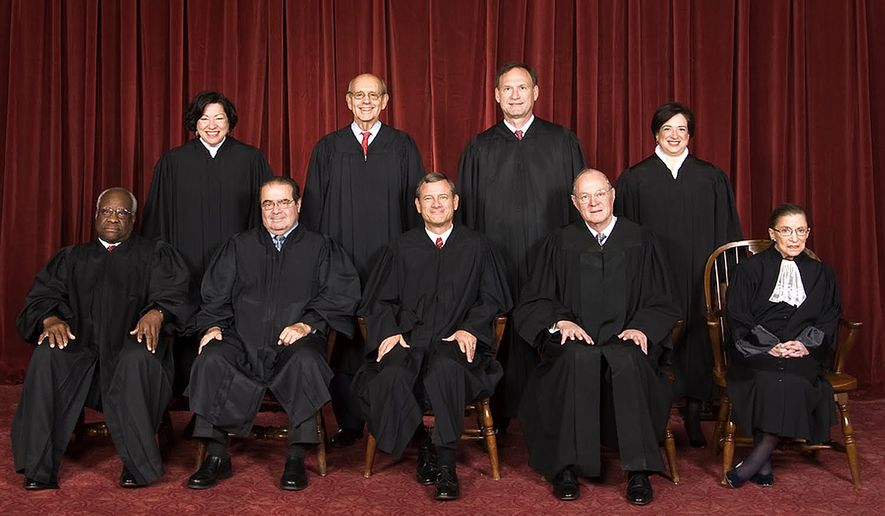The battle over Barack Obama’s immigration overhaul is likely headed to the courts, but legal scholars say the president’s specific tactics in acting unilaterally may be difficult to overturn.
For several months Republicans and Democrats have debated as to whether or not the President has the discretionary power vested to him in Article II of the Constitution to decide which immigrants face deportation.
But experts told The Washington Times on Thursday night that the president’s use of his discretionary powers to focus immigration enforcement on illegal immigrants facing other criminal charges and letting others have conditional work permits may be difficult to challenge.
They noted that prior presidents like Ronald Reagan and George H.W. Bush used such discretionary powers to carry out some of their agenda. They also noted, however, that Mr. Obama’s decision is only temporary and can be reversed by a future president.
Mr. Obama on Thursday night released a lengthy legal memo from his Justice Department to back up his actions, offering him guidance on how to implement his plan without running afoul of the Constitution.
“The Department of Justice Office of Legal Counsel released a 33-page opinion on the White House plan that identifies limits on the President’s prosecutorial discretion, but it does allow him to defer the deportation of about 4.5 million people,” said Professor Josh Blackman who teaches Constitutional Law at the South Texas College of Law.
Kevin Johnson, dean of the University of California Davis School of Law and a widely recognized expert on immigration law, said that it is still too early to tell what constitutional remedies may be available.
“From what I understand from the people who have been briefed it seems there isn’t much of a chance of the constitutional challenges prevailing,” he said.
“I think Congress and our immigration laws have given the President vast amounts of discretion, and he has discretion to enforce the immigration laws in some ways as long as he doesn’t abuse that discretion or act in ways contrary to Congress. It seems like it would be difficult to challenge what he’s outlined… It would be difficult to challenge the President on a program he created,” he added,
Article II of the Constitution grants the President executive powers, but also outlines requirements for him such as his requirement to faithfully execute the laws, a possible sticking point for Republican challengers who may argue that the President is purposely avoiding upholding the laws of the United States.
But the president is also granted the implied power of using his discretion to facilitate administrative policies within his administration as long as those policies do not cross the line into what is called ’executive lawmaking’ – or creating law from the White House and superseding Congress.
In the past, both Presidents Ronald Reagan and George H.W. Bush have also taken executive action on immigration. In 1986, President Reagan enacted policies that effectively granted legal status to 3 million immigrants and in 1990, President Bush implemented a “family fairness” program that shielded some illegals from deportation and allowed to seek employment if they were living with a legal immigrant and living in the U.S. prior to 1986.
The program covered an estimated 1.5 million people and President Bush’s changes were later adopted by Congress into federal law.
Texas Gov. Rick Perry, Indiana Gov. Mike Pence and Louisiana Gov. Bobby Jindal have already suggested they would be willing to join a legal challenge against the new policies.
To date, the Supreme Court has dealt three major blows to the White House when it has acted unilaterally. In the five years Mr. Obama has been president, the justices have ruled against his administration with 9-0 decisions 20 times. Irrespective of what happens on the court level, Mr. Obama’s polices could easily be swept away with a Republican victory in 2016.
If the Republicans don’t act now, these people have legal status that can’t be taken away while he remains in office, but it could be taken away later if President Rick Perry is elected in 2016,” Mr. Blackman said. “He could deport every one of them. Whoever comes into office can decide. That will be a serous issue for the next election and puts the judiciary in a really tight corner.”
• Jeffrey Scott Shapiro can be reached at jshapiro@washingtontimes.com.




Please read our comment policy before commenting.